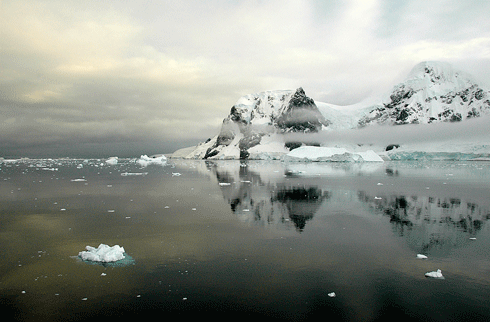
|
Published: 26 November 2012
Australian blue whales now call Antarctica home
New findings suggest that human activities have recently changed the ecology of blue whales, contributing to their move to colder climates.

|
|
Climate change may have pushed Australian blue whales south to the chillier waters of the Antarctic. Credit: Rita Willaert/Flickr (CC BY-NC 2.0)
|
A team led by researchers at Flinders University and Macquarie University have made two unexpected discoveries in the Antarctic: individuals from the pygmy blue whale subspecies (Balaenoptera musculus brevicauda) that inhabits Australian waters, and hybrids between Australian blue whales and the Antarctic blue whale subspecies (B. m. intermedia).
The genetic analyses, which have been published in Molecular Ecology, are based on samples collected since 1990. Previous analyses were based on non-genetic, biological data from historical whaling records from 1913 to 1973.
Catherine Attard, a PhD candidate at Macquarie University researching blue whale genetics, said, ‘Our genetic data unexpectedly found a higher proportion of pygmy blue whales in the Antarctic than the whaling catch data.’
Researchers said the findings have major implications.
‘This suggests either that climate change has recently pushed Australian whales to colder climates, or that decreases in population size from historical whaling has changed the ecology of the subspecies,’ said Dr Luciana Möller from Flinders University.
‘It could also be due to differences in the methods used to analyse genetic and non-genetic data. However, impacts from climate change or whaling are corroborated by our other genetics analyses that examine evolutionary, rather than recent, timescales,’ said Professor Luciano Beheregaray, a co-author from Flinders University.
Blue whales are currently endangered because of 20th century whaling. The new findings provide crucial information for their conservation.
For example, future monitoring of population numbers should now consider that not all blue whales in the Antarctic are Antarctic blue whales.
Source: Flinders University



